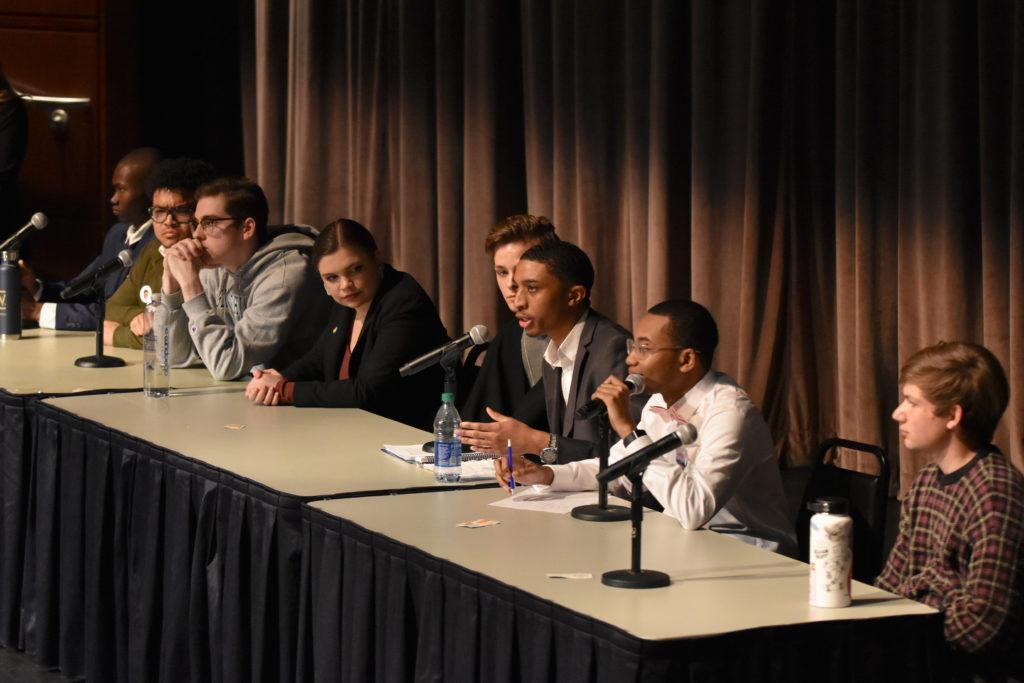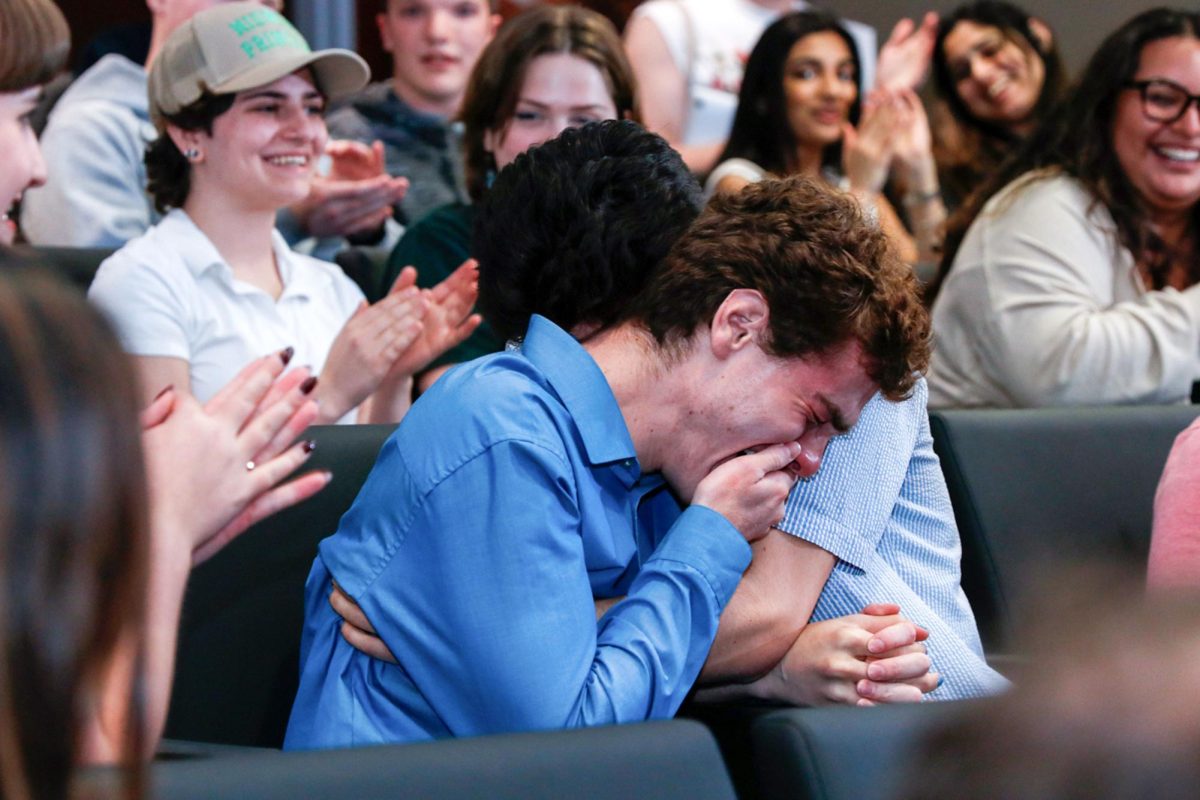Students bidding for Student Association president and executive vice president fielded questions about their platforms at a town hall Wednesday, about a month before elections are scheduled.
About 40 students gathered in Betts Theater to hear from eight SA hopefuls, who discussed their plans to address topics like collaborating with officials, campus racism and accessibility. Leaders of the Joint Election Commission – the body that oversees SA elections – moderated the two-hour-long gathering.
SA elections will occur two weeks later than the original date as officials plan to halt in-person classes and suspend student organization activities amid a COVID-19 pandemic.
Here are some takeaways from the town hall:
Working with administrators
Presidential candidate Georgie Britcher said the SA must collaborate with University President Thomas LeBlanc to hold more town halls and forums to produce “tangible solutions” for minority students’ concerns.
“A lot of students, including myself, have felt frustration with LeBlanc, but we also need to make sure we are working with him and are holding him accountable,” Britcher said.
Sophomore and SA Vice President for Public Affairs Drew Amstutz said SA leaders must work with officials like LeBlanc to change campus culture. Amstutz said he will advocate for students to be included in conversations with LeBlanc when he is considering implementing changes.
“If we start making all these changes that are not going toward his 2030 plan, he will resign, but as far as calling upon him to automatically resign without talking with other people and making changes ourselves I don’t think the job would get done,” Amstutz said.
SA Sen. Brandon Hill, CCAS-U and a candidate for SA executive vice president, said the SA should hold administrators accountable instead of creating hostility between students and officials.
“It would be very disruptive to the relationship with the administrators just to call for President Leblanc’s resignation, even in the case it fails and we still have to work with him,” Hill said.
Keeping Greek life on campus
Freshman and SA outsider Andy Liaupsin was the only candidate who took a firm stance on removing social Greek chapters from campus. Liaupsin said social Greek life can foster a “culture of sexual assault and sexual harassment” that should result in disbandment.
“It’s such a harmful institution, due to the racism, the sexual harassment that can occur at the parties,” he said. “It’s time they go away from GW’s campus.”
After serving a four-year suspension for reports of sexual misconduct, disorderly conduct, hazing and underage drinking, Phi Kappa Psi regrouped on campus this spring. Officials suspended Panhel chapters’ social events and informal recruitment after a racist Snapchat from a then-sorority president surfaced.
Presidential candidate Bishop Walton said he spoke with Greek leaders to understand negative perceptions around social Greek life after racist Snapchats were posted to sorority-affiliated student accounts in 2018 and 2019.
“I will continue as president to reach out to the different communities here on campus and make sure we are restoring the communities after certain situations – not just condemning the person but condemning the problem and making sure this community is better,” Walton said.
Addressing campus accessibility, food insecurity
Presidential candidate Christian Zidouemba said he will work to increase food variety to better represent Asian, African and Muslim communities. He said a monthly or bi-weekly grocery store transportation system can provide more options for Muslim students during religious holidays.
“During the month of Ramadan, the food option is closed, and we are usually fasting until 8:30 and there is no food option for us,” Zidouemba said. “I’m trying to make sure the University has a lot of options.”
Hill, an executive vice president candidate, said he will work to unite the SA with faculty and staff to ensure buildings meet American Disability Act standards.
SA leaders published a report last month that identified more than 60 inaccessible campus spots.
SA Sen. Howard Brookins, U-at-Large and a presidential candidate, said he wants to add a student-run food cooperative to F Street – where most freshmen live – to provide more stores at which students can buy fresh produce and groceries.
Brookins added that he would work with financial aid officials to reduce the cost of health insurance to improve the University’s “abysmal” disability services.
“I myself wear hearing aids, so when I had to go get them repaired, the cost was extremely high and I think that’s something that has to be looked at and fixed,” he said.
Revamping the financial aid office
Junior and SA Sen. George Glass, U-at-Large, said he is in the best position to overhaul the financial aid office because he works with officials like Michelle Arciere, the executive director of student financial assistance, on legislation as the SA’s finance committee chair.
Students have complained about “unresponsive” advising in the financial aid office, at times leaving students with holds on their accounts rendering them unable to register for classes, Glass said.
“I can make sure that they follow through on the changes that they proposed to make, like how they can get advice and counsel students,” he said.







